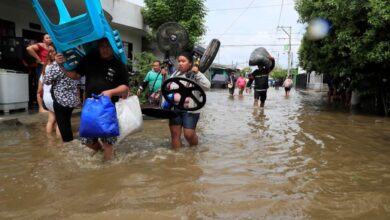And what about the glyphosate used in food crops?
The recent announcement of the return of glyphosate spraying for coca eradication in Colombia has generated strong opposition, but what about the glyphosate used in food production?.

The Colombian Government announced the issuance of a decree to return to aerial glyphosate spraying on coca crops. Photo: Pixabay
LatinAmerican Post | Vanesa López Romero
Listen to this article
Leer en español: ¿Y qué hay del glifosato utilizado en los cultivos de comida?
Last Monday, April 12, the Colombian Government announced the issuance of a decree to return to aerial spraying of glyphosate on coca crops . According to the Executive branch of the country, this decision is necessary to eradicate illicit crops in Colombia. Let us remember that, in 2015, the high court decreed the suspension of aerial spraying due to the carcinogenic nature and environmental problems posed by the use of this herbicide, but also defined a series of requirements which the Government of President Iván Duque is advancing currently to return to this activity.
Vuelve el glifosato a Colombia pic.twitter.com/8G9zDywx0B
— Herencia Ambiental (@HerenAmbiental) April 20, 2021
This news has generated controversy throughout the country, especially in farming communities, civil society and environmental organizations and experts . Since then, in a matter of less than two weeks, a project was created that sought to overturn this decree that was eventually shelved by the Fifth Commission of the Senate, while the Duque administration advances in making this decree a reality. However, a question arises from this whole situation: what about the glyphosate that is used in food crops that ends up on consumers' tables?
Also read: Save Ralph: This is how animal testing works in Latin America
It should be noted that the spraying of glyphosate for the eradication of coca not only has environmental and health consequences, but also has social consequences, since it leaves the families who are dedicated to the cultivation of the coca leaf without financial support , and they have no other choice. Likewise, this decision is in contrast to the Peace Accords, where it was agreed that coca farmers (not cartels or narcos) would gradually cease this activity with the help of an amparo appeal.
However, the use of this herbicide is not prohibited in Colombia, as it is used for spraying sugarcane, rice, coffee, plantain, banana, cotton, corn, among others . Consequently, the same environmental and health consequences fall on the use of these products. In the country the so-called Chinese glyphosate is used and also Roundup , one of the best-selling herbicides in the world and also one of the most controversial, since it is supposed that its use has come to cause cancers and for this reason it has been persecuted from Lawsuits since 2016 for Dewayne Johnson, a gardener who, after using Rounup in spraying, developed lymphoma.
So, it is worth asking ourselves, why is not the same attention and opposition paid to the use of glyphosate in the food that reaches our table and that, obviously, has direct consequences on the environment, on those who handle the herbicide and on consumers of the food that are fumigated with it?
What are the consequences of glyphosate?
According to Greenpeace, glyphosate has great consequences on the ecosystems where it is used . It has been proven that weed species such as Xanthium and Lolium are already resistant to this herbicide , which has as a consequence the abundance of these weeds and therefore increases production costs, greater dependence on agrochemicals and damage to the wild life. To the extent that the wild flora is affected, the fauna too. In the case of Colombia, the aerial spraying of glyphosate on coca crops directly affects jungle biodiversity . In addition, it has been proven that this product can reach water sources, thus affecting aquatic spices and also human consumption of water.
Regarding health, the fifth edition of the Glyphosate Toxicological Anthology includes more than a thousand scientific evidences that show that the herbicide does have health consequences on human beings. The immediate effects can range from skin irritation to eye irritation, as well as "dizziness, nausea, breathing problems, and increased blood pressure." But, regarding this, the most controversial thing has been that glyphosate can be considered a carcinogenic substance.
All this only leaves open the question of why glyphosate is still allowed in Colombia, if its environmental and health consequences are more than obvious.




